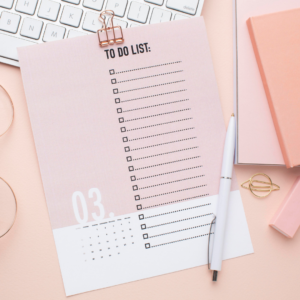Do you feel addicted to clutter? Clutter can take over our lives if we let it. It can be hard to break the habit of holding on to things that we don’t need, but it’s important to declutter our space for both our physical and mental health.
What is Clutter Addiction and Why Do People Develop It?
Clutter addiction is a condition where people feel the need to compulsively hoard or collect items, even if they don’t need or use them. This can lead to severe consequences, such as financial ruin, health hazards, and relationship problems.
People who suffer from this disorder often have feelings of shame and embarrassment and may go to great lengths to hide their problems from others.
There is no one single cause of clutter addiction, but it is often associated with other mental health disorders such as anxiety, depression, or OCD.
It may also be a coping mechanism for people who have experienced trauma or loss in their lives. Whatever the underlying cause, clutter addiction can have a devastating impact on people in general.
How Does Clutter Impact our Lives Mentally, Emotionally, and Physically?
The physical effects of clutter are often the most obvious. A cluttered home is difficult to clean and can be unsafe, as it increases the chances of trip hazards and fire hazards.
Clutter can also have a negative impact on our mental and emotional health. It can cause anxiety and stress, and make us feel overwhelmed, out of control, and even hopeless.
Living in a cluttered space can also lead to social isolation, as people may be embarrassed or ashamed of their homes and withdraw from activities and relationships.
What are the signs and symptoms of clutter addiction:
The most common signs and symptoms of clutter addiction include:
-Compulsively acquiring new items, even if they’re not needed or will never be used
-Hoarding items that are no longer needed or used
-Being unable to throw anything away, even if it’s broken or damaged
-Spending excessive time and energy organizing and sorting through belongings
-Allowing clutter to take over living spaces, such as bedrooms, kitchens, and bathrooms
-Withdrawing from social activities and relationships due to embarrassment or shame about the condition of one’s home
How Can We Break Our Addiction to Clutter for Good and Achieve Lasting Results?
If you’re struggling with clutter addiction, the first step is to seek professional help. A therapist can help you identify the underlying causes of your disorder and develop a treatment plan.
There are also many helpful books and online resources that can offer guidance and support.
Some tips for breaking your clutter addiction include:
-Start by decluttering one small area at a time.
-Set realistic goals and reward yourself for meeting them.
-Don’t be too hard on yourself if you have a setback.
-Get rid of anything that doesn’t bring you joy.
– Simplify your life as much as possible.
-Ask for help from friends and family.
– Seek professional help if you feel like you can’t do it on your own.
Final Note
Breaking your clutter addiction will take time, effort, and patience. But it is possible to achieve lasting results and enjoy a more peaceful and fulfilling life.




